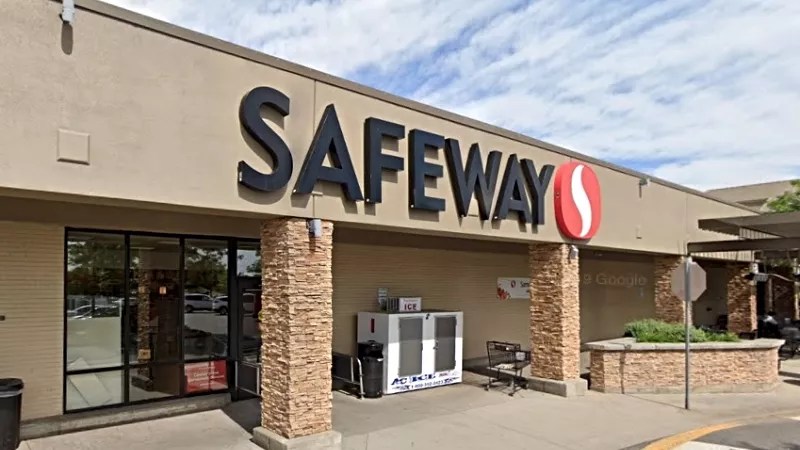
Google Maps

Audio By Carbonatix
Over the past month, the Colorado Department of Public Health and Environment‘s weekly updates regarding COVID-19 outbreaks in the state have included a growing number of new entries, from twenty on April 27 to 57 on May 11, the most recent weekly report. But the tally would be much higher if the CDPHE hadn’t changed its rules for reporting spread of the virus.
While what COVID-19 Joint Information Center spokesperson Paul Bishop describes as “high-risk congregate settings” such as schools, child-care centers and health-care facilities catering to seniors are still expected to closely monitor the disease and inform the state health department when infections meet or exceed certain thresholds, that’s no longer the case for retail outlets and many other businesses.
“At this time, we are not requiring that all workplace outbreaks be reported to CDPHE,” Bishop notes.
Colorado’s rules regarding outbreaks have shifted over time. For the first year-plus of the pandemic, the state health department considered an entity an outbreak site after two or more COVID-19 cases among residents, staffers or other people connected to a specific location were confirmed within a fourteen-day period, or two or more cases of respiratory illness with an onset of symptoms within a fourteen-day period were paired with at least one additional COVID-19 diagnosis.
But on June 1, 2021, the CDPHE determined that this standard should only be applied to residential health-care and correctional facilities. For everything else, outbreaks were only designated after “five or more confirmed or probable cases of COVID-19, of which at least one case has had a positive molecular amplification test or antigen test in a facility or (non-household) group with onset in a fourteen-day period.”
Despite this change, dozens upon dozens of businesses of all types, from nail salons to restaurants, were identified as COVID-19 outbreaks through the remainder of 2021 and into 2022, when the original Omicron strain caused enormous spikes in cases. But while a few shops have turned up on the department’s outbreaks roster lately (the Apple Store at Park Meadows was added on April 26, for example, and a Colorado Springs Home Depot made the May 2 list), they account for only a small percentage of the 386 outbreaks currently under active investigation. Moreover, many of those that remain on the list are months old – among them a Boulder Safeway identified as an outbreak site in early February.
In contrast, health-care facilities accounted for 41 of 57 outbreaks added on May 11 – and Bishop acknowledges that close monitoring of COVID-19, as dictated by a public-health order from September 2021 that’s still in use, is a big reason why.
“Testing frequently in these settings does make us more likely to detect an outbreak than in settings where frequent testing is not performed,” he notes. “It is likely that the increasing number of outbreaks in this setting reflects the increasing levels of community transmission, and frequent testing allows us to rapidly implement disease control measures in the facility to protect residents who are at high risk for severe illness.”
Businesses are no longer being asked to apply a similar level of scrutiny. Early on, Bishop confirms, “outbreak investigation and intervention for all outbreaks was one of our best tools to control transmission.” However, he adds, “with higher immunity in our communities and widely available vaccines, routine investigation of cases and outbreaks outside of high-risk settings is less effective in controlling transmission than it was before. Outbreak investigation and intervention in high-risk congregate settings have a larger impact in preventing severe outcomes.” Workplace outbreaks, not so much.
“We encourage people to take actions to prevent the spread of COVID-19 such as getting tested if you’re exposed or develop symptoms and staying home when you’re sick,” Bishop continues. If you test positive for COVID-19, it is important to notify your workplace and other contacts. If you test positive using a rapid, at-home test, we encourage you to self-report to the CO Exposure Notifications service.”
And more people could be testing positive, as Colorado appears to be on the cusp of another COVID-19 surge. On May 13, the CDPHE released a new modeling study from the Colorado School of Public Health and several other agencies showing that “COVID-19 transmission is on a relatively slow upward trend as indicated by percent positivity, wastewater concentration and hospitalizations.” The Omicron subvariant BA.2.12.1, also known as Omicron 3, appears to be spurring the latest wave, which could increase the number of people hospitalized for the disease to 500 or higher by the middle of June – nearly quintuple the average of 116 receiving treatment during the week ending May 10.
For now, though, the CDPHE doesn’t think requiring stores and many other public sites to report outbreaks again will be necessary. “If a business or venue has concerns about an outbreak, or cases related to their facility,” Bishop says, “CDPHE encourages them to reach out to their local public health agency for support implementing disease-control measures.”
Which could become even more necessary by this time next month.